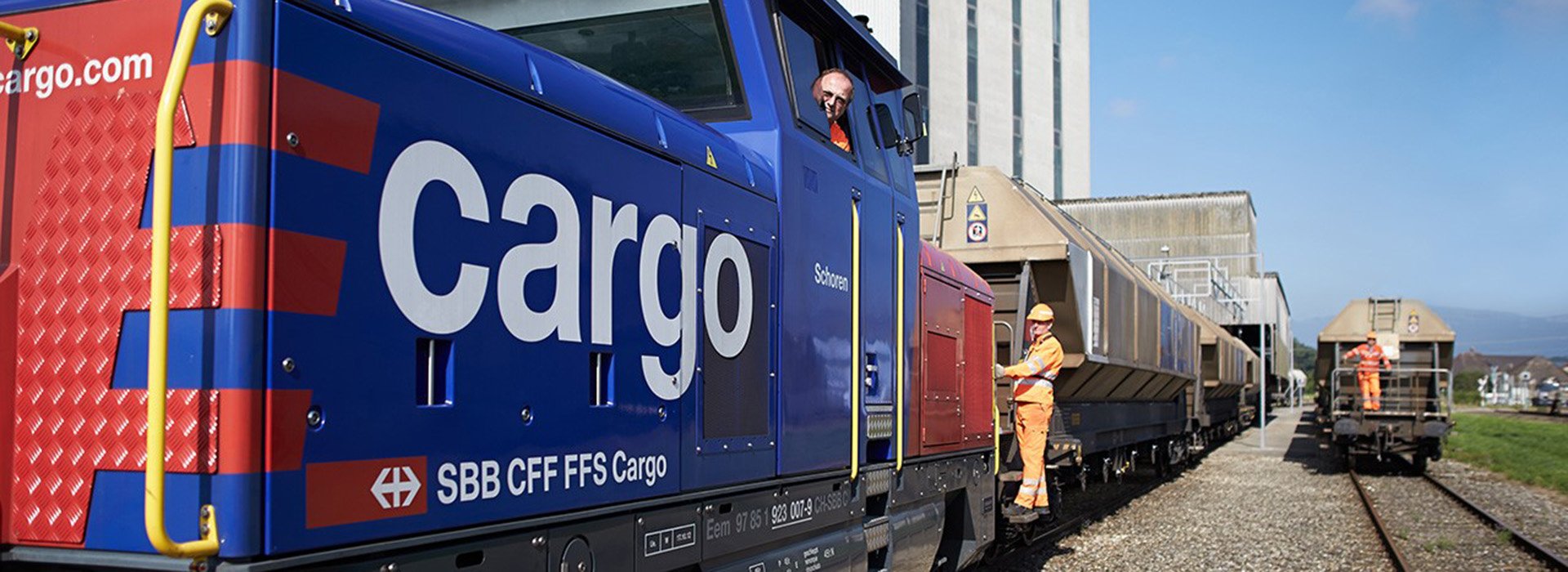Isabelle Betschart: Ability to See Different Perspectives
Making new connections, taking into account different perspectives and giving time underpin Isabelle Betschart’s values. As Head of Production and member of the Executive Committee at SBB Cargo, she talks to dss+ on how admiring the view and taking into account the big picture are vital leadership skills.


Isabelle Betschart
Head of Production at SBB Cargo, Switzerland
Q.
What inspires you about your role as Head of Production, and what skillsets do you value most?
What I enjoy most is meeting and working with people. I’m always thrilled to make new connections, whether professionally or socially. When we make an effort to connect to find out peoples’ needs, it’s easier to put things into context and add value, particularly when we find ourselves in new situations. Also seeing those new situations from different perspectives helps to find best solutions. Central to this is gaining a better understanding of my colleagues, which also helps strengthen my contribution to the role. Being curious is an important prerequisite.
Q.
How would you describe your leadership style?
Leadership is primarily about people and about shaping the present as well as the future. It is also important to me to appreciate the past and to include it when it is appropriate. I think leadership can only go in one direction, and that’s forward. In particular, leadership success in production requires a clear vision and respectful dialogue with team members. Mainly, you need to have good listening and observation skills to lead a team. If things don’t always work the first time, you need perseverance, and above all, there needs to be a high level of trust between leadership and team members.
"Perseverance and mutual trust have been particularly important since the onset of the pandemic. If your leadership results in happy and satisfied employees, you will have happy and satisfied customers."
– Isabelle Betschart, Head of Production at SBB Cargo, Switzerland
Q.
What impact has the pandemic had on the working environment?
Perseverance and mutual trust have been particularly important since the onset of the pandemic. If your leadership results in happy and satisfied employees, you will have happy and satisfied customers. During the pandemic we heard a lot about resilience. We experienced significant changes to the working environment and sought solutions to adapt. Now the agility to react to different scenarios as they arise and learn about new possibilities has become the new normal for everyone. I think one important lesson is that traditional management theory is not always the answer; we need to have faith in our ability to steer the ship and chart a more appropriate course when conditions change, not just in the short term but in the long term. Pre-pandemic, we often avoided risk by not making a decision. Now, we increase risk by not taking a decision. So it’s vital that everyone, including customers and employees, has confidence in the need to take decisions brought on by change. Without action and implementation, we will not be able to achieve the challenges we face. It’s about looking at the big picture and always moving forward.
Q.
What is your approach to how technology and innovation impact change?
Technology and innovation are often seen as stand alone tools to digitalise and automate, but they also represent a way to transform and develop processes across an organisation. So you have to look at it from several perspectives to manage the impact successfully. There needs to be a willingness to develop competencies often best achieved in small, evolutionary steps so employees see value in their progress and customers enjoy the benefits. This type of smart evolution ensures the human element is firmly embedded into the process by building up skills to meet the changes and challenges that technology brings. Careful planning and training to enable a continuous change process often work better than trying to take giant steps too quickly. Wider promotion of key performance indicators (KPIs) that show technology’s influence can help foster a better understanding of how, even within a change process, everyone’s role can make a difference.
"Technology and innovation are often seen as stand alone tools to digitalise and automate, but they also represent a way to transform and develop processes across an organisation."
– Isabelle Betschart, Head of Production at SBB Cargo, Switzerland
Q.
How does being involved in different parts of the organisation influence your role?
It has a significant influence. As I have already said, good management in today’s business world is more about steering, observing and keeping an eye on the big picture. It’s about having transparent, cross-divisional processes and responsibilities but also being flexible and committing to decisions and taking action at the right moment. This approach is essential for promoting good safety behaviours and sustainable business practices. Also, be mindful that safety and sustainability issues apply to both employees and customers. Employees want to work in a safe environment and know their work embraces sustainable values. Equally, customers want to buy from a company that takes safety and sustainability values seriously. By having a 360-degree view of these issues, we can strongly influence outcomes across safety and sustainability.
Q.
What would you say are the essential drivers of success in an operational leadership role?
I think the first point is to enjoy what you do. Being happy at work develops a more positive and engaging management style. You also have to consider the big picture, ask the right questions and, above all, promote transparency so that everyone can understand the process and see the value of decisions taken. It also helps to look at issues from different perspectives by developing a greater understanding of board-level or employee needs. This approach helps manage change more effectively. Finally, don’t dwell on things that don’t go exactly to plan. Keep in mind the positives; look how far you have come to get to that point and take a moment to sit back and enjoy the view. Once you have resolved the situation put setbacks into the background and move forward. It is only through failures that individuals and organisations can learn and grow.
"Don’t dwell on things that don’t go exactly to plan. Keep in mind the positives; look how far you have come to get to that point and take a moment to sit back and enjoy the view."
– Isabelle Betschart, Head of Production at SBB Cargo, Switzerland
Q.
Final words of advice for others, particularly women, looking to take on an operational role?
You need to be able to laugh at yourself sometimes and be less self-critical. It’s important to remember that we all have value to bring to the table, and that it’s important to be true to yourself and your principles. Business thrives on our ability to see different perspectives, new ideas and different emotions. Different opinions and perspectives offer a richer and more enjoyable working environment. Let people inspire you along the way!